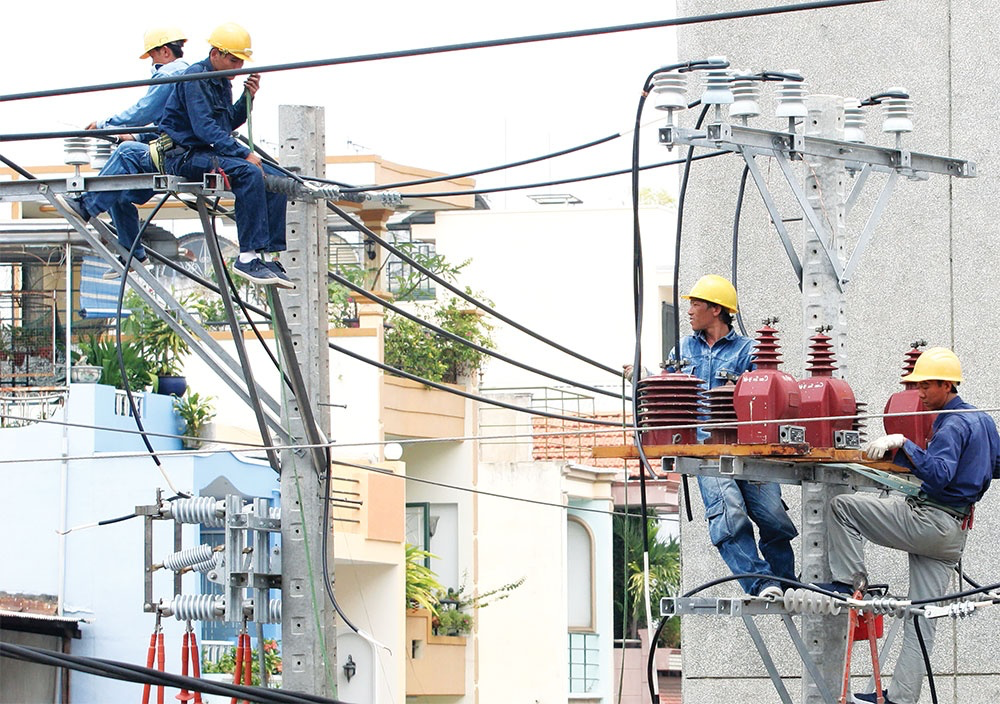
On August 3, Deputy Prime Minister Le Minh Khai requested that the Ministry of Industry and Trade (MoIT) urge Vietnam Electricity Group (EVN) to report the quarterly updated electricity price plan in 2023 to implement the electricity selling price in accordance with regulations.
The MoIT is gathering opinions on the draft decision of the prime minister regulating the structure of the electricity retail tariff. As a result, the retail price of electricity for the group of customers using residential electricity will be reduced from six to five tiers, and the price level will increase progressively to encourage efficient electricity consumption.
The old six-tier electricity tariff and the five-tier plan are being proposed for comments by the MoIT. Instead of the current 50 kWh, the least expensive tier will be for households consuming less than 100 kWh, while the most expensive tier will be for households consuming 700 kWh or more.
Tier 1 is calculated as 90 per cent of the average retail price of electricity (8.1 US cents per kWh as of May 4); Tier 2 is 108 per cent, Tier 3 is 136 per cent, Tier 4 is 162 per cent, and Tier 5 is 180 per cent.
Assoc. Prof. Nguyen Minh Due, chairman of the scientific council of the Vietnam Energy Association said, "Electricity price adjustment only considers cost-increasing factors, not cost-reducing factors. Increasing the capacity of hydropower facilities during the rainy season or reducing losses and lowering the cost of the system through the implementation of a competitive electricity market are both factors that can contribute to a decrease in costs."
"Vietnam's electricity tariff should apply a modern method based on long-term marginal costs and be composed of two components: capacity and electricity for producing households,"
According to MoIT, in 2022, the cost of electricity production and commerce was 8.6 cents per kWh, a 9.27 per cent increase from 2021 and a higher price than the current average of 7.9 cents per kWh.
According to a report by EVN on July 28, due to a financial imbalance, EVN requested permission from the government and ministries to modify the retail price of electricity in the near future to reflect production and business results. In 2022 and 2023, EVN anticipated that its cumulative production and business losses would exceed $3.9 billion.
EVN also proposes that the government review and amend Decision No. 24/2017/QD-TTg to have a basis for contemplating the next adjustment of electricity prices in 2023.
Before May 4, EVN determined that the average retail price of electricity would increase to 8.1 cents per kilowatt-hour (excluding VAT). This adjustment corresponds to a 3 per cent increase in the average retail price of electricity compared to the preceding period.
Source: VIR